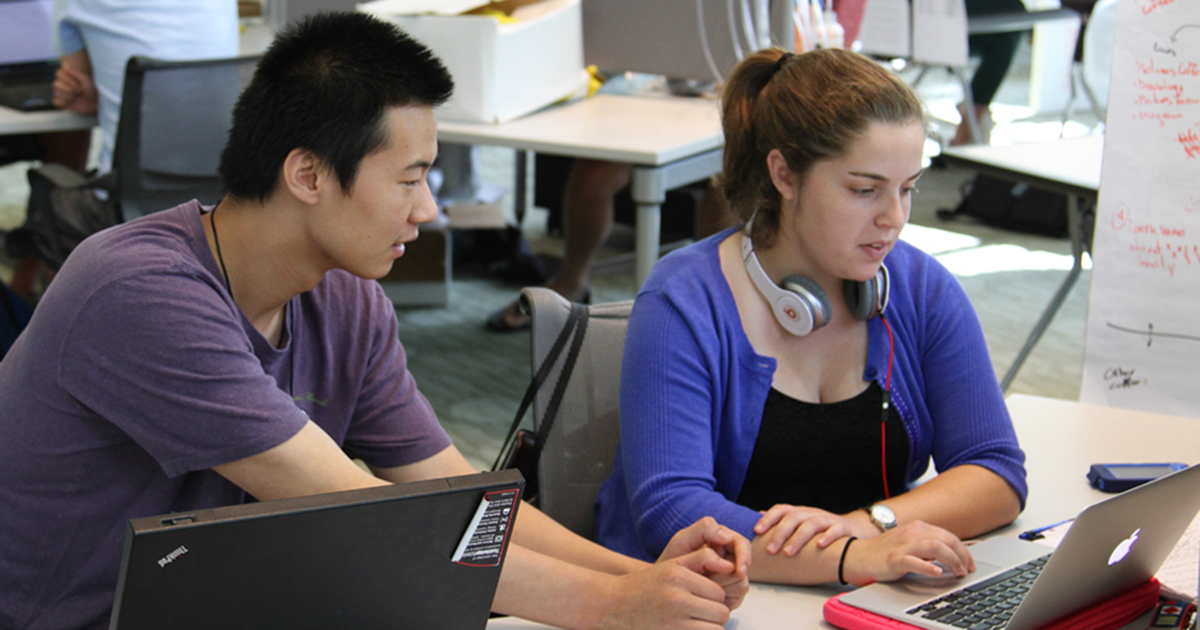Want to Join a Startup Accelerator? Read This First

Accelerators: they’re everywhere.
In the greater Boston area alone, there are more than 50 accelerators, incubators, and support programs that offer startups co-working space, education, capital, mentorship, networking, and other support.
Generally, these accelerators are structured the same: a cohort of startups participates for a set period of time and caps off the experience with a demo day. Yet, not all accelerators are created equal. Some offer cash and in-kind prizes. Some take equity in exchange for admission, others are free. Some have cohorts of fewer than 10 startups, others include more than 100.
With so many options—and so many differences among them—how should a founder decide which accelerator to apply to? And, more importantly, what can be done in the program to ensure growth actually is accelerated at the end?
To find out, we talked with four seasoned accelerator pros. They shared their wisdom, experiences, and advice with fellow founders considering applying for a program.
First things first: Do your research.
“Make sure the accelerator is the right fit for you,” advises Bernette Dawson, founder, Made Organics. “I wanted to gain business knowledge and become a well-rounded founder—I was missing some business savvy—and be supported as a female entrepreneur. That’s why the WIN Lab® at Babson was right for me.”
Babson’s WIN Lab, created by the College’s Center for Women’s Entrepreneurial Leadership (CWEL) is a venture accelerator that broadens the possibilities for women entrepreneurs capable of making a dynamic economic impact. Throughout the eight-month experience, “WINners” iterate their ideas, design and test prototypes, and launch or grow their ventures, providing business insight for Dawson and other female entrepreneurs looking to take the next step with their venture.
Still stuck on how to choose the right accelerator? Kathryn Jones, chief product officer of SuperHealos, recommends reflecting on your company’s needs. “You need to know what areas your company is struggling in. Find an accelerator that helps address those issues,” she says. Some accelerators cater to specific business needs more than others. Often an accelerator’s website will list what they can offer to your company such as one-on-one coaching, access to greater publicity, and connections with others in your industry.
“Have a few bulleted ideas of exactly what you need to figure out to make your company great, then objectively review the accelerator and find out if that one will help you achieve the specific goals you’ve set,” she recommends. For the SuperHealos team, accelerators such as the Summer Venture Program at Babson College (SVP), MassChallenge, and InnoLoft provided the right support at particular moments in the venture’s history.
Don’t shy away from accelerators affiliated with a college or university, even if you’re not affiliated with the institution.
“Because Yuan [Yin, our CEO] was getting her MBA from Babson, it was a natural choice for us to apply for their Summer Venture Program,” said Jones. SVP’s dynamic learning environment would help grow SuperHealos into a more mature startup. “It gave us the potential to be in a structured environment where we could soak up even more wisdom and advice from so many knowledgeable people.”
“I pride myself on going through an accelerator affiliated with Babson,” said Dawson. “Outside of the small business world, if I say I’ve gone through an accelerator program, many people don’t understand. But, the College’s name comes with credibility, recognition, and resources.”
Know what area of your business to focus on during the program.
Understanding what area of your business needs the most focus is key when choosing a startup accelerator or incubator. This knowledge will help pinpoint potential future problems and ensure the continued maturation of the business.
For Hanson Grant, founder of an education tool startup called Think Board, creating a more clearly defined company brand was the focus of his accelerator experience. “During MassChallenge, we wanted to focus on our brand, so we picked a mentor with branding expertise,” he explained. “Mentors can bring a lot to the table—connections, expertise—so choose them based on what you want to gain during the program.”
Work hard.
An accelerator can take a struggling startup to the next level, but hard work will always be a vital part of any entrepreneurial venture. “Don’t expect an accelerator to fix your problem,” said Yin. “If you prepare, do your homework, and are proactive, you’ll be much more successful. Otherwise, an accelerator is just office space.”
Both Yin and Grant agree: accelerators are only as good as the work you are willing to put into the experience. “If you’re on Facebook the whole time, nothing will get done,” said Grant. “You don’t just go into the program and have everything work out for you—you have to really work at it.”
Take advantage of your accelerator’s network.
As a microcosm of the larger world of business, accelerators emphasize the important skills required to run a successful venture. Networking in particular can be key in a startup’s ability to reach a wider target market; taking advantage of an accelerator’s network and resources is a must for any venture.
Who knows, you may even make a business connection that helps move your business forward. Grant did. “During one of the Butler Venture Accelerator pitch sessions, I said I wanted to partner with Microsoft,” he said. “I didn’t know this beforehand, but someone from Microsoft was there. After my pitch, he came over, gave me his card, and we started chatting. He connected me to a number of people, who have, in turn, connected me to people—it’s incredible.”
Setbacks happen. Use them to make your business better.
A startup wouldn’t be complete without a few setbacks. What separates ventures is their ability to deal with and overcome these failures. A cornerstone of accelerators: Knowledge and feedback, especially constructive criticism, to help turn a business’s weaknesses into strengths.
Dawson learned this firsthand in the WIN Lab. “When I first started in WIN Lab, I had a product, a brand name, and a story. But, during our second pitch session, a judge said, ‘I hate your brand.’ In front of the whole crowd. I couldn’t hear anything else she or any of the judges said after that,” she said. “At the end of the night, I pulled her aside and asked her what she didn’t like. From her feedback, Made Organics was born. And, since we rebranded, we’ve seen an increase in sales. So, when you fail, fail fast, and learn from your mistakes. Then, move forward.”
Daniel O’Hanlon ’21, a current student at Babson College, contributed writing and editing for this story.
Posted in Insights





